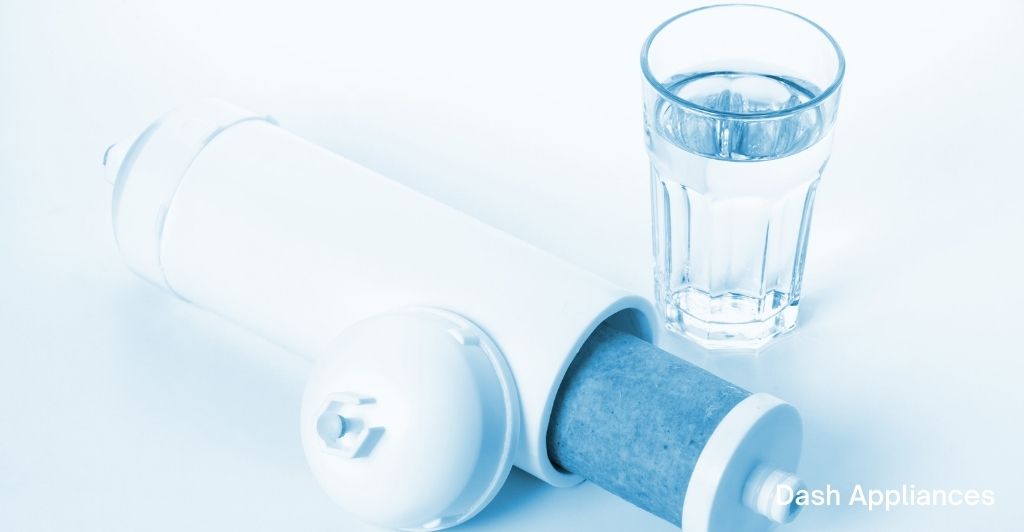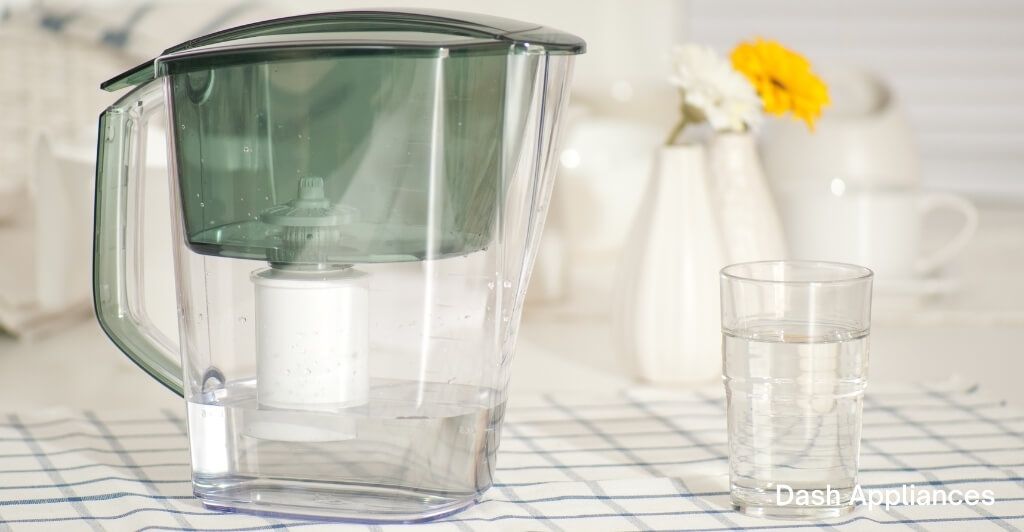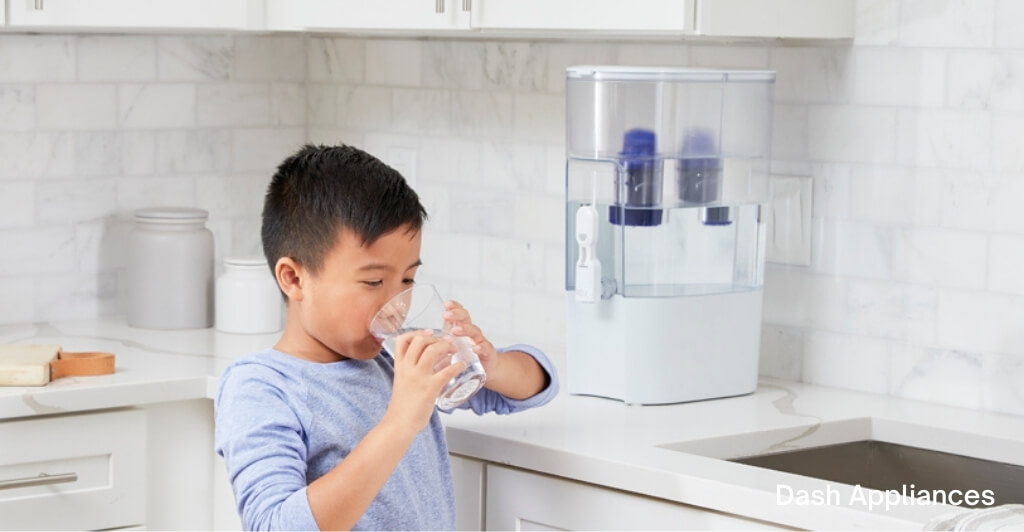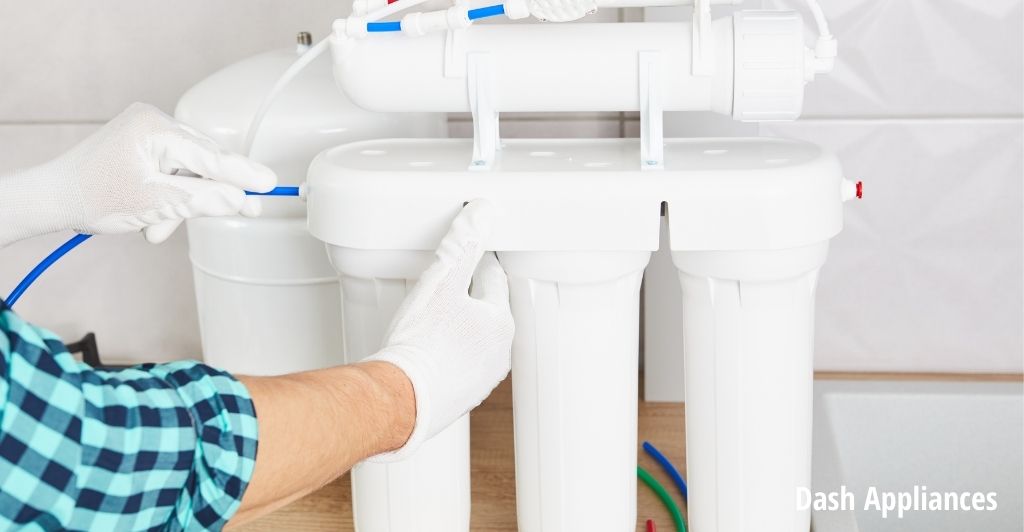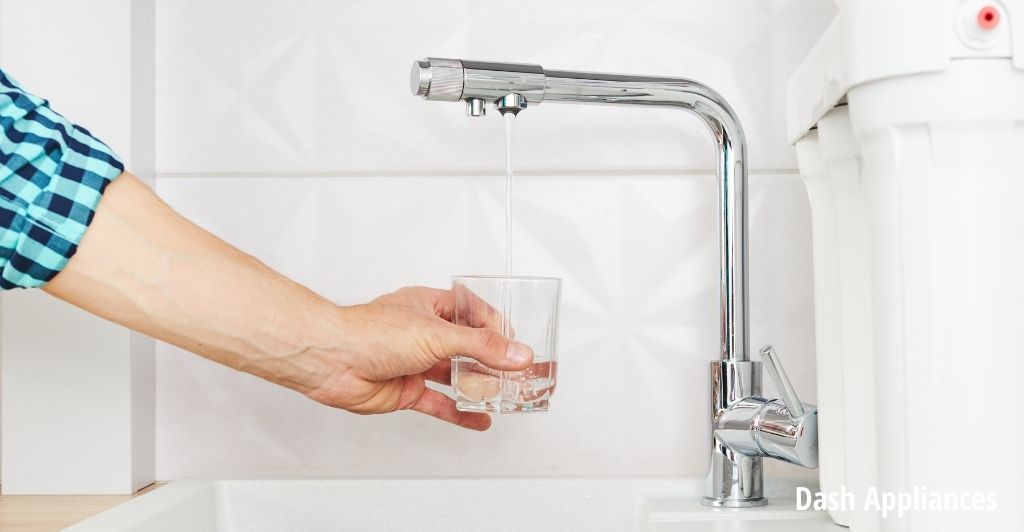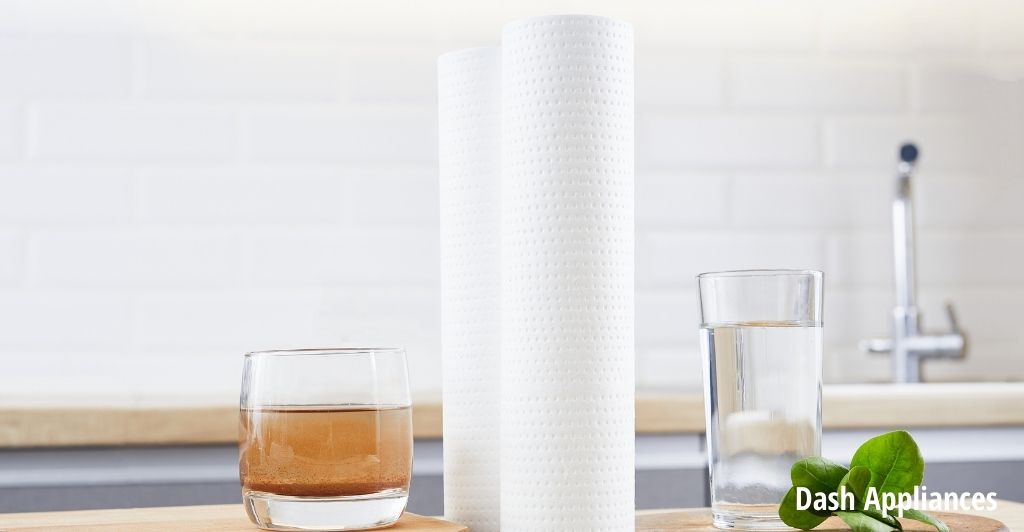Both PUR and Brita, are highly popular water filter brands available in the market today. Both the manufacturers are majorly famous for their filter pitches as well as faucet filters and feature a wide variety of filtration systems.
In a situation like this, it may be difficult to differentiate both the brands and point out the key differences that set them apart. However, there’s nothing to worry about as in this article, we’ll do that for you!
A Quick Comparison of PUR vs Brita Filter
Although both of the brands, PUR and Brita deliver a great range of water filter models, we must tell you that PUR’s water filters work to discard more water pollutants in comparison to Brita. On the other hand, Brita provides some great filters that are designed to last long and also eliminate lead from your water without any extra cost.
So overall, if you wish to discard a greater number of pollutants, PUR water filters will work the best for you. Otherwise, Brita is a better choice for the majority of the people.
However, there’s a lot more to both of these brands. To get a better understanding, continue reading till the end to know which water filter brand is your best bet.
PUR vs Brita: Which is the Best Water Filter
Let’s have a close look at the major differences between the two brands based on the following factors:
1. Filter Capability
PUR
PUR provides 2 different kinds of pitchers that include one being the standard option and the other one featuring LED. Both of these water filters operate in nearly the same manner (using WQA-certified MAXION technology).
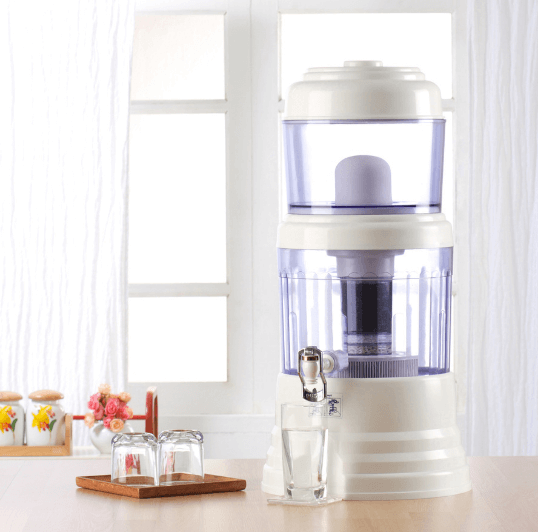
The water filter works to eliminate the water pollutants gradually as it will get filled with water from your tap. PUR’s water filters are designed using coconut shells. The pores are smaller in size as compared to activated carbon. This helps the filter to trap the water pollutants while letting the tinier elements to just run through.
The brand also provides a specific water filter for Lead Reduction along with another Standard replacement water filter. Both of these models work to eliminate even more water pollutants.
Brita
Similar to PUR, Brita water filters are also located in the pitcher. When the Brita pitcher gets filled with water, it works to gradually eliminate the water pollutants while leaving you with just clean and healthy drinking water.
Some popular Brita filters include Standard and with Long-Last water Filters. The Standard option works to deliver to you about 40 gallons of water while removing cadmium, chlorine, mercury, copper, and various other contaminants from your water. The manufacturers make use of carbon blocks for trapping water pollutants. Brita water filters also feature a non-woven component that is specifically formulated for removing sediment.
Although the latter option (Long-Last water filter) is also constructed using the same elements, it lasts almost 3x longer as compared to the Standard one.
2. Contaminants Removal
Brita water filters work to lessen the odor as well as the taste of chlorine in the water. They also remove various water contaminants such as copper, asbestos, sediment, lead, and so on.
PUR water filters are equally good in terms of removing water contaminants. They work to reduce the amount of chlorine in your water while removing 99.9% of mercury and lead, and 92% of different pesticides.
It is said that PUR’s water filters are 2x more efficient than Brita’s water filters in terms of contaminant removal. Therefore, if that’s a major concern for you, PUR might be the best choice for you.
Here’s a quick overview of what contaminants are removed by both filter brands.
| Contaminant | PUR Standard Filter | PUR Lead Reduction Filter | Brita Standard Filter | Brita Longlast Filter |
| Lead | ❌ | ✅ | ❌ | ✅ |
| Mercury | ✅ | ✅ | ✅ | ✅ |
| Asbestos | ❌ | ❌ | ❌ | ✅ |
| Benzene | ✅ | ✅ | ❌ | ✅ |
| Cadmium | ✅ | ✅ | ✅ | ✅ |
| Copper | ✅ | ✅ | ✅ | ❌ |
| Zinc | ✅ | ✅ | ✅ | ❌ |
| Herbicides | ❌ | ❌ | ❌ | ❌ |
| Atrazine | ✅ | ✅ | ❌ | ❌ |
| Linuron | ✅ | ✅ | ❌ | ❌ |
| Industrial Pollutants | ❌ | ❌ | ❌ | ❌ |
| Tetrachloroethylene | ✅ | ✅ | ❌ | ❌ |
| Carbon Tetrachloride | ✅ | ✅ | ❌ | ❌ |
| Bisphenol A | ✅ | ✅ | ❌ | ❌ |
| Nonylphenol | ✅ | ✅ | ❌ | ❌ |
As you can see, PUR filters are more capable compared to Brita filters.
3. Performance
PUR
On paper, PUR’s water filters take about 6 minutes to purify your water. Undoubtedly, this is great for a filter pitcher. However, many customer reviews say that in a true sense, it takes anywhere from 9-11 minutes which is yet again a decent one. It is worth mentioning that many filter pitchers take up to almost 60 minutes for purifying water.
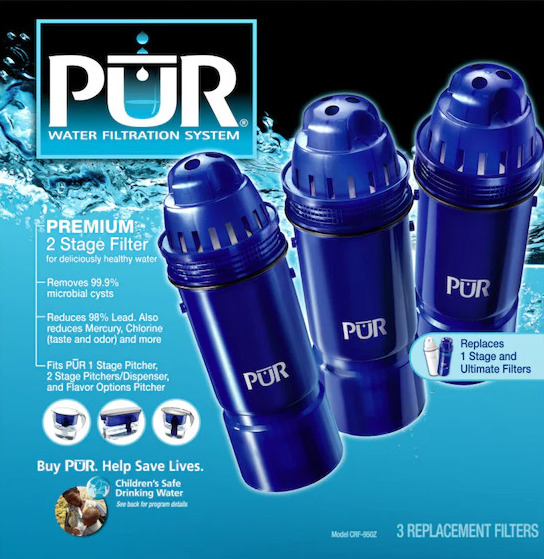
Note: When your PUR water filter will be reaching towards its end, it may slow down and take up to 30 minutes to purify a complete pitcher.
Brita
Brita water filters are slightly slow in terms of their performance. It may take up to almost 15 minutes to purify your water.
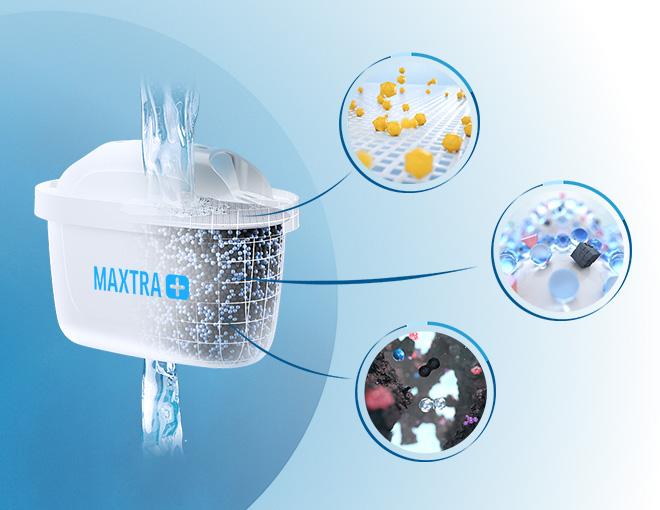
However, with its high level of long-lasting performance, users don’t mind having this slight gap.
4. Lifespan
The Standard models of both the brands are almost identical in terms of their lifespan. Both of them last for about a couple of months of standard usage and deliver 40 gallons.
However, Brita’s Long-Last water filter is the highlight of the brand in this regard. As the name suggests, this water filter delivers to you 120 gallons and lasts for about 6 months of standard usage. The Lead Reduction Water Filter by PUR lasts for a much shorter period that is 2 months and delivers 30 gallons.
Therefore, in this regard, Brita is the clear winner out of the two. It doesn’t require you to replace your water filter every now and then while delivering optimum performance.
Pros & Cons: PUR vs Brita
PUR Pros
1. Removes More Water Pollutants as Compared to Brita: This is perhaps the nicest selling point for PUR. It removes far more contaminants when compared to Brita.
2. Affordable Price: All of the water filters by PUR come at a very affordable price. The brand also offers multi-packs for replacement filters which ultimately proves to be very cost-effective.
3. Ease of Use: A pitcher filter should not just work well but also be easy to use. You would not want a filter that would intimidate you every time you are about to use it. PUR’s water filters are not very complicated and make both the setup as well as maintenance very easy for the users.
Brita Pros
1. Reasonable Cost: Brita is one of the most popular water filter brands available worldwide today and yet, both pitcher filter as well as faucet filter by the brand are available at such reasonable prices.
It is worth mentioning that the company has never made a significant rise in its price rates over the past years and that has a big role to play in helping the brand maintain its strong customer base.
2. NSF-certified: All the products by Brita are certified by NFS. This implies that all of their products work just as they are advertised.
3. Great Variety of Designs: In terms of their designs, Brita clearly wins out of the two brands. Brita offers a wide variety of water pitcher filters that feature fascinating designs and shapes. In simple words, they have an option for all tastes!
For faucet filters by the brand, the designs are too basic and don’t offer much selection of designs. Nonetheless, their collection of pitcher filters are certainly going to blow your mind!
PUR Cons
1. Additional Cost for Lead Filter: A separate expense for lead filters by PUR is certainly a way for the brand to earn some extra bucks, however, it is slightly frustrating and puzzling that one has to pay an extra amount for their lead filter especially when even the standard water filters by Brita work to eliminate lead without any extra cost.
2. Simple Designs: As compared to Brita, PUR’s water filters are quite basic in terms of their designs. The brand doesn’t provide anything additionally interesting about their water filters and although the appearance is not that bad, it’s still not very appealing.
Brita Cons
1. Mixed Reviews for Faucet Filters: Faucet Filters by Brita have not proved to be up to the mark for a lot of customers. Although the majority of the reviews are on the positive side, it has received a few negative ones that complain about shorter lifespan, leaking issues, and poor flow rate.
2. Doesn’t Discard Living Organisms : Brita filter may not be the right choice for you if you wish to remove bacteria or viruses from your water. A lot of water filters do not discard living organisms out of your water and Brita is certainly one of those systems. Make sure that you are not using pitcher filters by Brita for water sources such as rivers, wells, or lakes as these filters are not going to work for them.
Final Verdict: Brita vs Pur?
In terms of water pitcher filters, Brita is a clear winner out of the two for the majority of the users.
Although PUR is a great choice itself, Brita offers better designs, removes lead without any additional cost, as well as provides a Long-Last filtration system. However, if contaminant removal is your main priority, then PUR is the way to go.
On the other hand, it’s nearly impossible to declare any one brand as the winner in terms of faucet filters as both of them are equally great.
Frequently Asked Questions (FAQs)
Which water contaminants does PUR’s water filter remove?
PUR’s water filters work to reduce the amount of chlorine in your tap water to a great extent. They remove 99.9% of mercury and lead and 92% of different pesticides present in your water.
Which water filter lasts the longest?
Brita’s Long-Last water filter. It delivers 120 water gallons and lasts for about 6 months of standard usage.
Which brand removes more contaminants?
PUR’s water pitcher filters are 2x more effective in removing contaminants from your water as compared to Brita. Brita water filters work to remove 60 impurities whereas PUR water filters eliminate 70+ pollutants.
Although there’s not going to be much difference in odor or taste of water by both the filters, PUR becomes a better option as it provides greater value for the cost.
